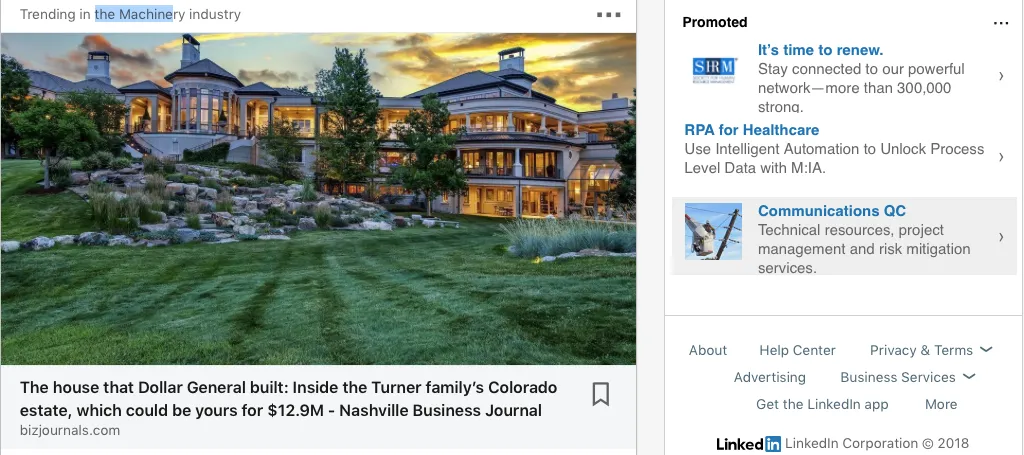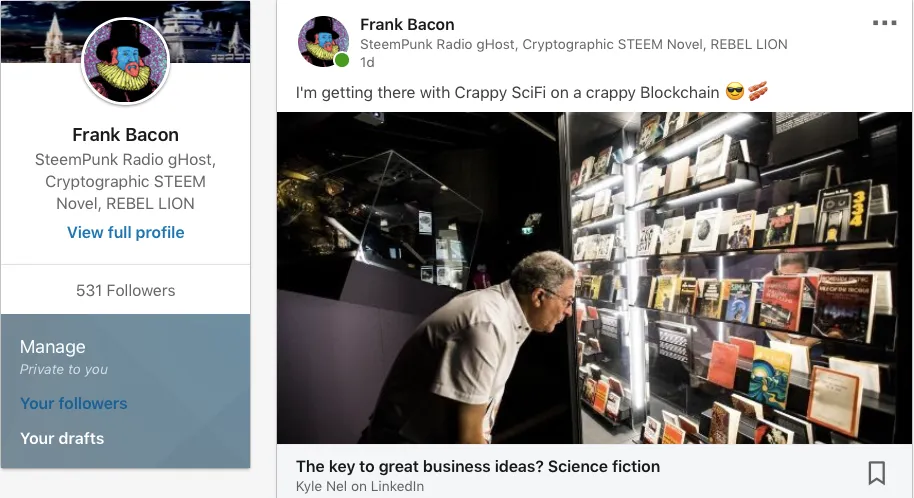BACON knows that HIS job is to transform HIS EMPIRE to keep pace with technology and an ever-changing ARG environment. HE also knows that HE IS bound to fail in doing so.

But this discouraging prospect is not because HE won't be able to solve a technological or strategic problem. FRANK will fail because of intractable human responses associated with change--responses such as fear, ingrained habits, politics, incrementalism, and lack of imagination. These stumbling blocks always arise when we humans are faced with change, but what if we had a way to transcend them?
~New Tools to Overcome the Human Barriers to Change

Although it is easy to be inspired by the power of a story to turn back time or make scientific breakthroughs, the other side of the coin revealed by ... research is the power of the biases that hold us back. Without our ever realizing it, these stories and patterns limit our thinking and actions. In particular, the tendency toward incremental thinking — to see and act on what is nearby, easy to access, and familiar rather than what is possible — may be the first obstacle to overcome when we try to change.

Science fiction inspires us for several reasons. First, it encourages us to imagine — even demands that we imagine — a different but possible future. Second, good science fiction takes into account the human elements of technology and change and wrestles with its implications. Thus, the good stories are less about the technology and more about the human problems that technology reveals or solves. Together these elements — the abilities both to see further and to ask what problems could be solved — can help us break free of the biases that trap us in incremental thinking and can let us envision believable, valuable new futures.
By Kyle Nel, Nathan Furr, and Thomas Zoega Ramsoy
Leading Transformation: How to Take Charge of Your Company's Future,
from which this article is adapted.